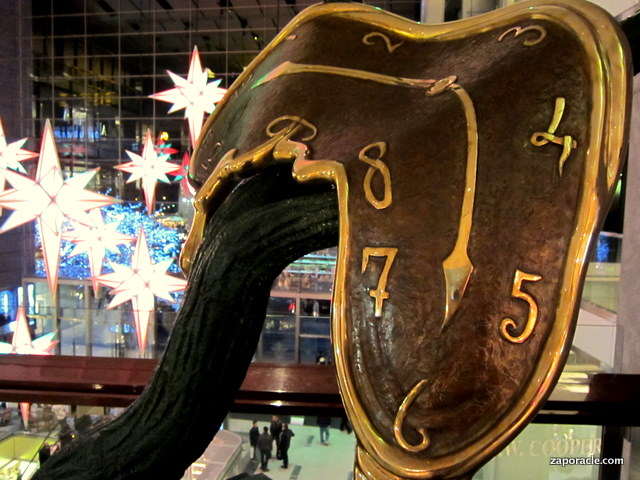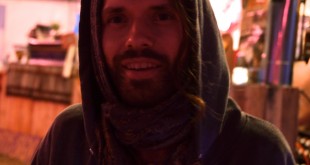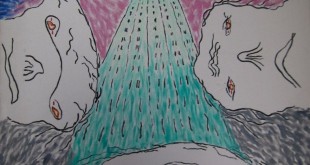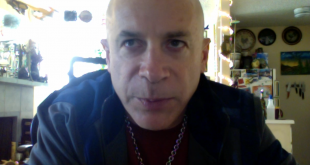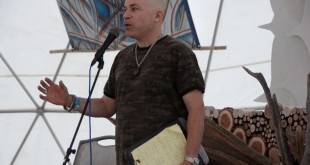© Copyright 2004 by Jonathan Zap
Note: Most of the following concerns time, but in the first section, I introduce Tolkien’s elf mythology which is often counter intuitive to people who have seen the movies, and even for those who have read the trilogy. In the ring trilogy Tolkien vividly describes particular elf characters as so exemplary and heroic that it often comes as a surprise to discover in his notes and letters that Tolkien considers the elves as almost developmentally disabled. The first section explains Tolkien’s ambivalent and paradoxical view of the elves which is necessary to understand the second section which concerns time perception.
Who are the elves and what meanings do they have for us? Tolkien has conscious views of the elves which are expressed in his writings, particularly his letters, but there are also other layers of meanings, which are implied or which manifest directly out of the creative muse, with or without Tolkien’s conscious approval. I believe that elves have such a resonance and inner recognition for us because they are a real biological form (if not necessarily carbon-based) which we recognize from within. (For much more on my view of the elves see Parallel Journeys, and The Glorified Body–Metamorphosis of the Body and the Crisis Phase of Human Evolution). For me, the elves resonate with the future as well as the past. (I didn’t make links for this article, but all the articles referred to are easily found on the website.)
Tolkien saw the elves as “man before the fall.” He did not, however, altogether idealize them. There was an anti-life aspect to the elves in his mythology in their desire to preserve and live in the past. Tolkien disparagingly referred to them several times as “embalmers.” Despite their love of nature, the elves were the opposite of Taoists in that they resisted change and sought to live in an “embalmed” past. In a letter Tolkien writes,
But the elves are not wholly good or in the right. Not so much because they had flirted with Sauron; as because with or without his assistance they were ‘embalmers’. They wanted to have their cake and eat it; to live in the mortal historical Middle-earth because they had become fond of it (and perhaps because they there had the advantages of a superior caste), and so tried to stop its change and history, stop its growth, keep it as a pleasuance, even largely a desert, where they could be ‘artists’—and they were overburdened with sadness and nostalgic regret.
I have to wonder here if Tolkien might not be projecting an aspect of his own elvish creative muse onto the elves. For Tolkien, an Oxford philologist obsessed with old English dialects, the distant past was numinous, and most aspects of his present era were abhorrent to him. Besides his contempt for modern technology, he also disliked most modern literature. And for Tolkien, Shakespeare was a detested modern upstart. So when he talks about elves as, “artists…overburdened with sadness and nostalgic regret.” maybe this is a reflection of his own creative muse which drew inspiration from the past and cringed from the present with distaste.
Tolkien, like Dickens, had an early childhood in a beautiful, bucolic place which was scarcely altered from earlier centuries. His fall from this childhood paradise into grimy, industrialized modernism (like Dicken’s descent into the blacking warehouse and London’s underworld) created a bitter nostalgia for a lost time. Also, as a class conscious Englishman, he may have resented his status as a middle-class academic, and sensed that in some other realm he had a higher caste or status. Perhaps this is why he refers to the elves fondness for historical Middle Earth, “…because they had become fond of it (and perhaps because they there had the advantages of a superior caste)” Note the reference to “prestige” in another letter that is a variation on the same themes:
…..we see a sort of second fall or at least ‘error’ of the Elves. There was nothing wrong essentially in their lingering against counsel, still sadly with the mortal lands of their old heroic deeds. But they wanted to have their cake without eating it. They wanted the peace and bliss and perfect memory of ‘The West’, and yet to remain on the ordinary earth where their prestige as the highest people, above wild Elves, dwarves, and Men, was greater than at the bottom of the hierarchy of Valinor. They thus became obsessed with ‘fading’, the mode in which the changes of time (the law of the world under the sun) was perceived by them. They became sad, and their art (shall we say) antiquarian, and their efforts all really a kind of embalming — even though they also retained the old motive of their kind, the adornment of the earth, and the healing of its hurts.
(That concludes the introduction and now follows the section on time:)
Tolkien recognizes that the nature of time, qualitatively and quantitatively, depends on the psyche and essence of the observer. As consciousness alters, so does the perception of time. We all have experienced this. Time runs differently when you are hurrying to an appointment with a thousand worried details crowding your mind than when you are walking through the woods on a long summer afternoon. Some thoughts and theories I have about time are relevant here, so I’m going to mention them before I explore time in the Tolkien mythology.
I frequently find myself trying to clarify with people the two very different senses in which time may be said to go slow. The first case of time going slow is the sense of time dragging, the nine-to-fiver watching the clock, the school kid waiting to be saved by the bell. This is time being experienced as oppressive while in a ghetto of meaning, a wasteland or flatland. In the meaning ghetto, as Jung described it, “The life-giving rhythms of the eons becomes the dread ticking of the clock.”
The second case of time slowing is related to an intensification of consciousness, awareness, presence. For example, your first day in a new country would seem very long, not because it was boring or time was dragging, but because of novelty, the density of new things to be aware of, the opposite of a predictable overly familiar environment.
An analog, that I’ve used to illustrate this involves motion picture photography. In early silent films time appears to go fast in an unpleasant way—people scurry like ants and seem mechanical and jerky in their movements. The reason for this is that the film running through the camera was going slow. Moving picture film needs to go through the camera at a minimum of seventeen frames per second (fps) to get more lifelike motion. Slow motion photography, which enhances our awareness of some high speed event, requires that the film goes through the camera much faster, say seventy fps. When played back at normal speed, time slows down in the projected film in a very desirable way.
The camera is analogous to the psyche of the observer. The more “neurological events,” or more accurately, the more monads or units of consciousness awareness occurring per second (the more “frames”), the more time slows down for the observer.
For example, if your car starts spinning out on the freeway, adrenaline rushes into your bloodstream temporarily raising your body temperature several degrees. Neurological activity intensifies greatly. Cognitive process speeds up and time slows down. When you are driving uneventfully on the highway by contrast, minutes, even hours, may slip by unnoticed, but during the spin-out, in a heightened state of alertness, each heart beat can seem like an eternity. The camera is going faster and therefore the projected reality slows down.
I first remember experiencing this time-slowing effect when I was severely mauled by a dog when I was ten years old. My ordinary ego and time sense seemed to step aside and I found myself in a zone of slow time and greatly heightened awareness.
Frank Herbert, author of the classic Dune books, describes many characters capable of this time sense, and apparently he experienced it in his own life. Once he was driving his family at high speed and encountered a situation that involved an open drawbridge and what should have been a fatal, no win automotive scenario. Time slowed down to such an extent that he could calmly consider, like an engineer, dozens of possible solutions to the emergency before selecting one that only a Hollywood stunt man would have dared, and of course it worked. More than once I have been in a life or death situation where this alteration of time sense probably saved my life.
This desirable slowing of time does not, however, require an emergency. People who advance in meditation discover states outside of ordinary time. Hallucinogenic experiences, which also intensify density of inner events, typically alter time sense. People who have near death experiences (which they often describe as more of an emergence than an emergency) may experience a comprehensive life review while only a few minutes may pass in the operating room.
Aside from these extraordinary situations, some people experience time quite differently from other people who are also journeying from birth to death. Some people, often older people, will say things like, “The years just fly by.” I count myself blessed that this is not the case for me. Often I will think back to where I was a week or ten days ago and that seems like another life time. When life becomes routinized, scheduled, mechanical—-when students, nine-to -fivers, retirees or whomever fall into a daily routine, then the density of consciousness declines. In the routine life, time may drag in the negative sense of slow time, but it also speeds up in the undesirable way of a silent film. In such a mundane life too little is happening, or too little is being noticed, and the years just slip by. When the years fly by, then the camera is too slow or inattentive. When we are really engaged by life, when, for example, we are in the state of being that Mihaly Csikszentmihayl calls “flow,” time does not drag, and each moment is experienced with alert engagement and filled with intensity and meaning. When meaning is sucked out of experience then time drags and years slip by.
The very different types of characters and races in the Tolkien mythology can be viewed as personifications and embodiments (but not allegorical placements!) of different types and styles of consciousness. Different types of consciousness mean different perceptions of time and this is richly illustrated in Tolkien’s writings. (see also Clock Time Metastisizes Toward 2012)
Gandalf the Gray’s fall in the Mines of Moria, and the torments and death of an identity he experienced, can be viewed archetypally as the classic ego death— the dark night of the soul that precedes rebirth (in his case emerging as Gandalf the White). The dark night of the soul involves a density or compression of time that while terrible and painful, is also quite developmental and transformative. Gandalf relates, “I strayed out of thought and time, and I wandered far on roads that I will not tell…each day was as long as a life-age of the earth.” Gandalf seems to contradict himself when he says that he wandered “out of thought and time” and then in the same sentence tells us that he had a cognitive experience of time as greatly lengthened so that each day seems like an eon. Probably he is using the license of poetic speech to communicate that he wandered out of ordinary time and thought.
In the following exchange among Legolas, Frodo and Sam we get a number of versions of time perception and both positive and negative versions of slow time:
Legolas stirred in his boat
. ‘Nay, time does not tarry ever,’ he said; but change and growth is not in all things and places alike. For the Elves the world moves, and it moves both very swift and very slow. Swift, because they themselves change little, and all else fleets by: it is a grief to them. Slow, because they do not count the running years, not for themselves. The passing seasons are but ripples ever repeated in the long long stream. Yet beneath the Sun all things must wear to an end at last.
But the wearing is slow in Lorien, said Frodo. The power of the Lady is on it. Rich are the hours, though short they seem, in Caras Galadon, where Galadriel wields the Elven-ring.
….But so it is, Sam: in that land you lost your count. There time flowed swiftly by us, as for the Elves. The old moon passed, and a new moon waxed and waned in the world outside, while we tarried here.
Legolas expresses a clear awareness of observer dependent time. He says that “…time does not tarry ever…” which suggests that he believes that time has an unvarying existence outside of the observer and is a stable frame of reference (I’m not agreeing or disagreeing, but this is what Legolas suggests). When he says that, “For the Elves the world moves, and it moves both very swift and very slow.” He appears to be coming from Tolkien’s POV of the elves as developmentally stunted, stagnant— the elves as embalmers. Remember that the elves are, according to the Tolkien mythology, disadvantaged by their excessive longevity which Tolkien considers a “premature immortality” which tends toward stagnation. The elves are like a sentimental, nostalgic elderly person whose gaze is caught in memory and longing for the past. The neglect of contemporary time means that the years fly by, “…Swift, because they themselves change little, and all else fleets by: it is a grief to them…” The inner stagnation also creates a slowness in time because of its monotonous predictability, “…but ripples ever repeated in the long long stream. Yet beneath the Sun all things must wear to an end at last.” In the last statement Legolas describes time as entropic, as under the rule of the second law of thermodynamics, which is psychologically in the ascendant for the stagnant psyche which is much more analogous to a closed system than a dynanmic, developing psyche.
Frodo, however, has an altogether different perception of elf time than Legolas because for him being in the realm of the elves is highly novel. Frodo is a traveler in a foreign and exotic place so for him time is slow and swift in exactly the opposite way, “But the wearing is slow in Lorien, said Frodo. The power of the Lady is on it. Rich are the hours, though short they seem.” For Frodo the hours are rich because this is all new for him while the elves are experiencing endlessly repeated ripples. But when Legolas speaks to Sam he seems to have entirely missed that for the hobbits fast and slow have an opposite meaning, and he presumes that their time sense was merely entrained by that of the elves.
 ZapOracle.com home to the free 720-card Zap Oracle
ZapOracle.com home to the free 720-card Zap Oracle

